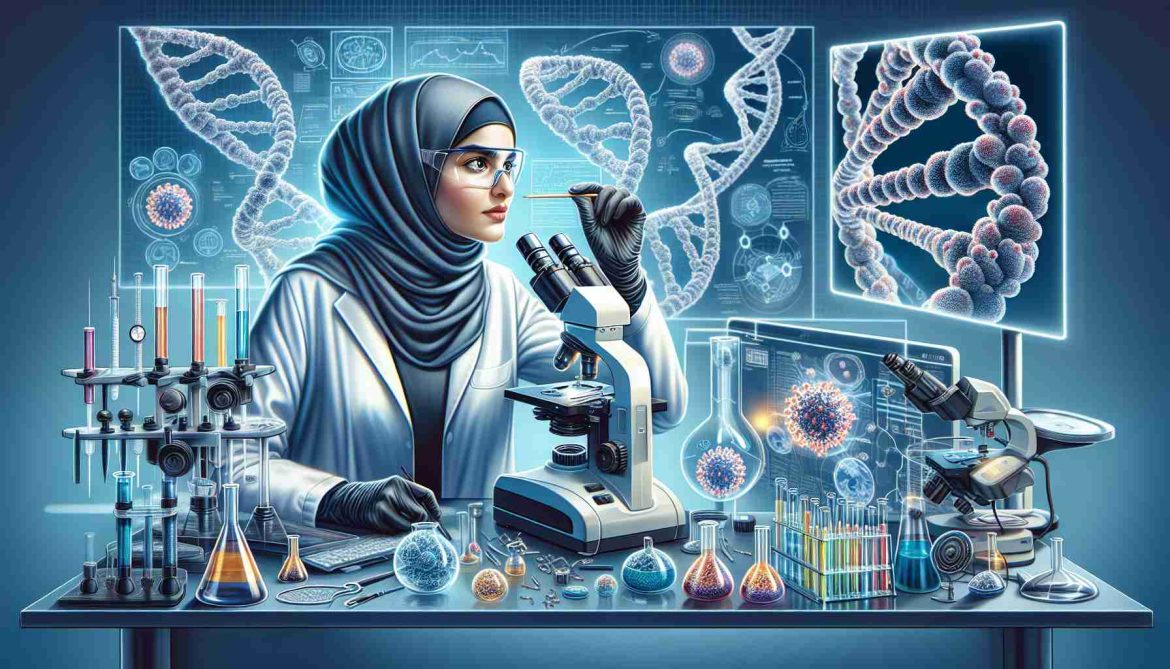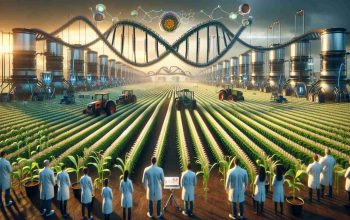“`html
Transforming Protein Manufacturing
In the realm of biotechnology, advancements in protein manufacturing are essential for the development of vaccines and other medical treatments. Stepping into this innovative space is Alexandra Bonnyman, who currently serves as the Director of Engineering Operations at Sunflower Therapeutics. Alex is on a mission not only to enhance these manufacturing processes but also to promote inclusivity for women pursuing careers in science, technology, engineering, and mathematics (STEM).
From her early career, Alex faced a challenging job market shaped by the late-2000s recession. Despite initial setbacks, she carved out a path in biotechnology, where her expertise in fermentation and manufacturing became pivotal. Today, she leads a talented team in creating advanced automated manufacturing equipment designed to make protein production more efficient.
Her innovations promise significant improvements in how quickly protein-based products reach consumers, particularly benefiting areas with limited access to resources. Through her work, she aims to tackle vital supply chain issues and promote sustainable practices.
Moreover, Alex emphasizes the importance of women uplifting one another within the industry, reminding us that collaboration fosters progress. As a part of a women-led organization, she enjoys an environment where everyone is encouraged to share ideas without fear of being overlooked.
With her vision for a more inclusive future, Alex Bonnyman is not just making strides in biotechnology—she is setting the stage for future generations of women in STEM.
“`
Revolutionizing Biotech: The Future of Protein Manufacturing and Inclusivity
Transforming Protein Manufacturing
The biotechnology sector is experiencing a seismic shift in protein manufacturing, driven by innovative leaders like Alexandra Bonnyman, Director of Engineering Operations at Sunflower Therapeutics. As advancements continue to unfold, several key aspects emerge that are shaping the future of this industry.
Innovations in Protein Manufacturing
One of the most crucial developments in protein manufacturing is the rise of automated production systems. Alex’s team is pioneering technology that significantly enhances the efficiency of protein production. These advancements are not only streamlining processes but also reducing costs, which can lead to more affordable vaccine and treatment options for consumers.
Use Cases and Industry Impact
The applications of improved protein manufacturing technology are vast, including:
– Vaccines: Rapid production capabilities can expedite vaccine availability, particularly in response to emerging global health threats.
– Biopharmaceuticals: Enhanced manufacturing processes directly impact the timely production of critical drugs.
– Nutritional Products: As interest in alternative proteins and sustainable food sources grows, efficient protein manufacturing techniques can cater to this market.
Sustainability in Biotechnology
Sustainability is a growing concern in all industries, and biotechnology is no exception. Innovations in protein manufacturing aim to minimize waste and reduce the environmental impact of production methods. Key strategies include:
– Reducing Resource Consumption: Advanced fermentation techniques allow for lower energy and water usage.
– Circular Economy Practices: Incorporating recycled materials in the production process to reduce the carbon footprint.
Inclusivity and Empowerment in STEM
Beyond the technological advancements, Alex Bonnyman emphasizes the importance of fostering an inclusive culture within the STEM fields. Her work in a women-led organization is a testament to promoting diversity, ensuring that women’s voices are amplified, and their contributions recognized.
# Pros and Cons of Current Technologies
Pros:
– Increased efficiency in production processes.
– Greater accessibility to essential medical treatments.
– Enhanced sustainability practices in manufacturing.
Cons:
– High initial investment for adopting new technologies.
– Potential for increased complexity in production workflows.
Market Trends and Predictions
Looking ahead, the protein manufacturing sector is poised for substantial growth. Factors influencing this include:
– An increasing demand for biologics due to an aging population.
– Ongoing global health crises that require rapid vaccine development.
– A shift towards plant-based and alternative proteins, driven by consumer demand for sustainability.
Security Aspects
As biotechnological processes become increasingly digital, cybersecurity is paramount. Protecting intellectual property and ensuring the security of sensitive data related to vaccine and treatment development are critical challenges that the industry must address.
Conclusion
Alexandra Bonnyman’s efforts illustrate a transformative moment in both protein manufacturing and the broader biotechnology field. By marrying innovative production techniques with a commitment to inclusivity, she is not only revolutionizing how proteins are produced but also helping to cultivate a thriving community of women in STEM. As the industry moves forward, these advancements will play a crucial role in addressing global health challenges and promoting sustainability.
For more information on the latest trends in biotechnology and innovative solutions, visit Biotechnology Innovation.



